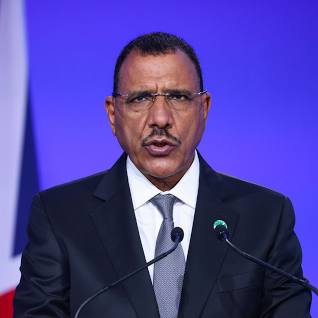“You are leaving when the weather is getting better and we are about crowning our new King,” our son Taiwo said with a hint of laments as he drove his parents on an hour’s journey from the arboreal new city of Milton Keynes to London’s Heathrow Airport where the plane was waiting to take us back to Lagos where we have been away from in the past five weeks holidaying.
There is nothing like a good vacation. It might be expensive, but it’s worth the price.
I love this anonymous travel quote: “Travel is the only thing that you buy that makes you richer.”
For a storyteller like me, travelling provides the inspiration and the ideas for a good feature story.
I have so much to say about Milton Keynes, the borough that was elevated into the status of a city sometime last year by the late Queen Elizabeth with the hope of opening up business opportunities in this lovely city.
But the news today is about Prince Charles III and his coronation—an event of a lifetime.
Luckily for me, at a bookstand in Heathrow, I came across the latest edition of Reader’s Digest, the magazine that groomed me into becoming a writer, having read editions upon editions of it in my formative years.
The cover edition carries a story on King Charles III, who will be making history today as the next King of England—an event of historic proportion to be televised and watched by billions of people around the world.
The Reader’s Digest has a piece by Jennifer McShane which looks back at the life of King Charles III and ponders what the future of the monarchy might look under his rule. Here is an abridged version of the Reader’s Digest story:
WHEN KING CHARLES III became the UK’s new sovereign following the death of his mother, Queen Elizabeth II, his first public address thanked his “darling mama” for her love and devotion to their family and the family of nations she so diligently served through the years of her reign.
It was clear then, the first child of Queen Elizabeth II and Prince Philip, Duke of Edinburgh, was aware of the enormity of what lay ahead as her successor, but also his intent to honour and continue the work she had done so faithfully for decades.
Charles, 73, was born at Buckingham Palace in London in 1948. He was just three years old when he became the heir apparent as his mother acceded to the throne as queen, following the untimely death of her father, King George VI.
For over seven decades, he had known he would sit on the throne as his mother did, but in his case, he had had plenty of time to prepare as he dutifully worked at, as some have called it, “the longest apprenticeship in history.”
From a young age, the future king saw firsthand the sacrifices his mother made in the devotion to royal duty as a young woman.
Safe to say, she had far less time than most mothers to spend with her firstborn son and heir, whose known shyness and sensitivity as a small child, alongside the frequent-yet-necessary absences of both his parents, was noted by those closest to him.
In 1970, he graduated from the University of Cambridge with a Bachelor of Arts degree, becoming the first apparent to earn a university degree. Cambridge later awarded him a Master of Arts degree.
He became the Prince of Wales in 1969, after he had spent a term at the University College of Wales at Aberystwyth, where he learned to speak Welsh.
Two years later, Charles took his seat in the House of Lords, and then spent the next few years serving in both the Royal Navy and Royal Air Force, following in his father’s footsteps.
In 1981, the world watched as he married Lady Diana Spencer, who became the Princess of Wales. The couple had two sons, Prince William and Prince Harry, second and sixth in line to the throne.
Their marriage was to be a tumultuous one and the couple eventually agreed to separate in late 1992 and divorced in 1996.
Tragedy struck when, in 1997, Diana was killed in a car accident in Paris, with the monarchy thrust into the spotlight and closely scrutinized for their response to such a publicly beloved woman’s death.
It was among the most challenging times up to that point both for him and the royal family, with Charles no doubt noting the pressure the Queen came under during the previous years, especially her “annus horribilis” of 1992.
Happier times were ahead for the then prince, marrying Camilla Parker Bowles in 2005, who became the Duchess of Cornwall.
He met Camilla at a polo match around 1980 and despite the challenges of their friendship and then relationship widely reported on over the years, the Queen and many other delighted at this new chapter in his life.
Charles and Camilla, 75, are also expected to be coronated side-by-side, per Queen Elizabeth’s request that Camilla become queen consort—the title given to the wife of a reigning king.
With his reign already begun, all eyes are on King Charles as he prepares to make his own mark on the monarchy.
Reports have suggested his preference for a more “slimmed down” version of the monarchy we know now, and though we are not privy to the changes he’ll enact, he has already started shifting things around.
While the crowning is the most famous part of the ceremony—when St Edward’s Crown is placed upon his head—it is the anointing by holy oil, consecrated in Jerusalem, that is arguably the most important and solemn part of the ceremony.
This will be a powerful statement affirming Charles’ traditional position as a divine monarch who rules for life. (GBN)





